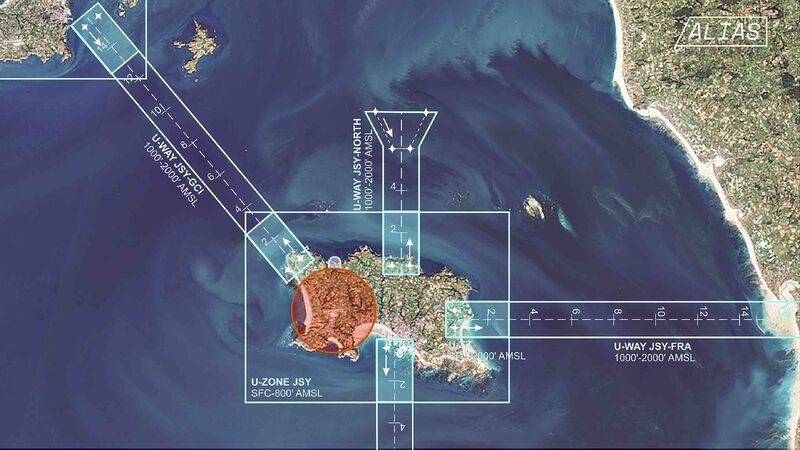Innovate UK is funding a two-year GBP3.7 million programme to test uncrewed aircraft operations. The AgiLe Integrated Airspace System (ALIAS) project brings together nine technology companies, led by Volant Autonomy, to demonstrate a scalable and cohesive airspace system for the future. The trials will involve multiple aircraft types ranging from a manned helicopter (simulating an EVA [Electric Vertical Aircraft] or Air Taxi) to small delivery Uncrewed Aerial System (UAS) aircraft with various levels of electronic conspicuity and DAA (detect & avoid) capability.
The project will work in collaboration with RTCA (Radio Technical Commission for Aeronautics) to evaluate the emerging regulatory framework concerning ACAS Xr (Airborne Collision Avoidance System [ACAS] for large rotor traffic) and sXu (ACAS for smaller UAS).
There are five core cross-cutting technologies that form the basis of the ALIAS airspace system:
- Intelligent Detect and Avoid (DAA)
- Secure Communications
- Distributed Sensor Network
- Scalable Uncrewed Traffic Management (UTM)
- Aircraft Systems — both Uncrewed Aircraft Systems (UAS) and Advanced Aerial Mobility (AAM)
The project will feature several increasingly complex flight trials and ultimately establish a flexible and resilient Uncrewed Traffic Management (UTM) system over the Channel Islands. The UTM system will operate in collaboration with the local Air Traffic Management (ATM) system, managed by the Ports of Jersey authority
During the initial phases the partners integrate their individual technologies, incrementally building a regional airspace system including ground and flight testing of the sub-systems. The project culminates in the deployment of the ALIAS system to the Channel Islands in a test environment for a regional airspace system that can be replicated across the UK.
This deployment will include drones performing maritime and public health missions, a helicopter acting in the role of an air taxi alongside scheduled manned operations from the local airports. It is hoped the trial will lead to drones being used to improve connectivity between the islands, deliver critical medical supplies, and assist with Search and Rescue and Fisheries patrols.
Participants include ANGOKA, Cambridge Sensoriis, Draken Europe, Dronecloud, Drone Defence, Ports of Jersey, Sky-Drones, SkyLift, Skyports Drone Services, and TEKTowr.
The test area is an area of low traffic density with trials set to take place in March and May 2024. The drones will fly below 3,000ft, which is well underneath commercial aircraft flight paths, and will be the height that these would probably operate at in the future. The helicopter will operate exclusively from the airport adhering to all local noise regulations. Data will be gathered to determine if there is likely to be any impact on wildlife.
Sensoriis will provide RadarAware solution on the airborne platforms to provide resilient detect and avoid capability, along with interfaces into other flight systems and data recording systems. Radar data will be captured during flight trials. Algorithms will be developed to detect potential obstacles most effectively to the UAS, both in flight but also on the ground pad during landing phases, says the company.
For more information visit:




